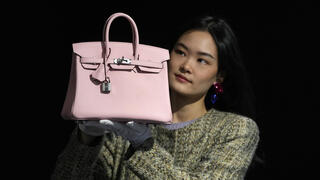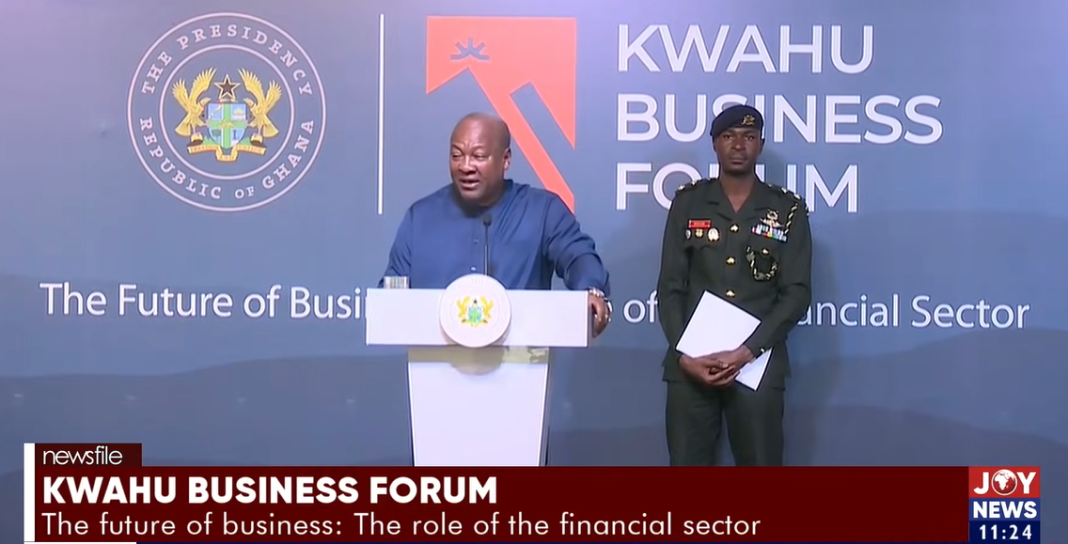The U.S.–China trade war has taken a viral turn, with Chinese factory owners now flooding TikTok with videos offering direct-to-consumer deals on fashion and beauty products at a fraction of their original price — sparking outrage and confusion online.
Videos show Nike sneakers sold for under $10, Lululemon leggings for $5–$6 (compared to the $100 retail price), Birkenstock sandals for $10 instead of $150 and even a so-called Hermès Birkin bag for $1,400 labeled “Made in China,” despite the fact that the iconic bag is hand-crafted exclusively in France. While China is a global textile powerhouse , much of the world’s fashion manufacturing is also spread across countries like Bangladesh, Indonesia, Vietnam and Thailand. Some luxury brands even complete only part of their production in China before finishing the item in France, which allows them to legally label it “Made in France.

” Despite claims in the videos, Newsweek reported that strict U.S. and EU regulations make it nearly impossible for high-end products manufactured in China to be labeled as originating elsewhere.
In the U.S., the “Made in USA” label is permitted only if all components and production processes are domestic.
European rules go further, with France and Italy requiring that the final substantial stage of production occur locally — French brands like Hermès often ensure design, materials, assembly and finishing are all completed in France and may even comply with the “Origine France Garantie” standard. @felixsanchez244 USA 🇺🇸 ♬ original sound - Felix Sanchez When items are clearly labeled “Made in China,” as with Nike or Lululemon, it becomes harder to distinguish genuine goods from fakes. It’s a situation similar to the “Blue and White” tags on clothes in Israel that are actually sewn in Egypt or Jordan under trade agreements, where at least 35% of the product’s added value must come from Israeli labor or materials to be considered “Israeli-made.
” The viral trend has sparked debate over pricing gaps and product quality, with some TikTok creators arguing that Chinese manufacturing can meet high standards. According to Business Standard, the videos challenge the perception that “Made in China” equals poor quality, instead showcasing meticulous production and attention to detail. Get the Ynetnews app on your smartphone: Google Play : https://bit.
ly/4eJ37pE | Apple App Store : https://bit.ly/3ZL7iNv User reactions have been mixed: some say direct sales might become the only option if tariffs keep rising, while others question why U.S.
consumers continue paying hundreds in retail for goods sold in China for pennies. The trend has also raised questions about whether this is a grassroots move by factory owners or a coordinated effort by the Chinese regime. @luunasourcingchina Suppliers behind Lululemon!!! #sourcingtips #sourcingagent #yiwuagent #yiwuminigoods #yiwumarkets #Lunasourcingchina #chinasource #lululemon #lululemonaddict #alols #yoga #yogawear #activewear #fashion #leggings #factory #chinashipping #wholesale #shoefactory #leggingfactory #alibaba #directfactory ♬ original sound - Lunasourcingchina One viral video put it bluntly: “For decades your government and oligarchs sent your jobs to China — not for peace, not for diplomacy but to exploit cheap labor.
Meanwhile, they drained your middle class, destroyed your working class and told you to be proud while they sold your future for profit. Americans, you don’t need tariffs — you need a revolution.” Attorney Rachel Zilberfarb Schreiber, a specialist in fashion law, said it’s too soon to tell whether these videos represent nationalist sentiment, a state-led initiative or simply desperate factory owners trying to offload fake goods.
“They may have lost major clients — or never had them — and are now selling high-quality counterfeits,” she said, adding, “Everyone in China is afraid of [Donald] Trump’s trade war.” Zilberfarb Schreiber cast doubt on the authenticity of the featured products, noting that a real Hermès Birkin, often dubbed “the holy grail” of luxury, is produced solely in France. A Chinese-made version shown online would be a counterfeit, which is a criminal offense.
Such items can be seized and destroyed by customs — even in Israel. 2 View gallery U.S.
President Donald Trump, Chinese President Xi Jingping ( Photo: CHARLY TRIBALLEAU and Elvis Barukcic / AFP ) She clarified the difference between imitation and forgery: an imitation may resemble a Birkin bag but carry a different name, while a forgery uses the Hermès trademark to present itself as authentic. Since joining the World Trade Organization in 2001, China has improved intellectual property enforcement under pressure from the international community. But, she added, “In light of the trade war, it seems the regime no longer cares.
There’s currently no enforcement against factories advertising these products.” What about the brands themselves? If a factory in China manufactures for Nike or Prada, can it legally sell leftover stock at rock-bottom prices? “Absolutely not,” said Zilberfarb Schreiber. “There are confidentiality and non-compete agreements in place.
But how do you enforce them? Are you going to sue that factory from Italy? They won’t show up. Sanctions could work — but only if the Chinese government enforces them. And right now, it doesn’t seem to care.
” >.
Entertainment

'Made in China': Trade war fuels fake luxury goods gold rush on TikTok

Chinese factories leverage TikTok to sell cut-rate 'luxury' goods as Trump's tariff plan kicks into action; expert says counterfeit item sales could continue with trade war in place










_updates.jpg)




